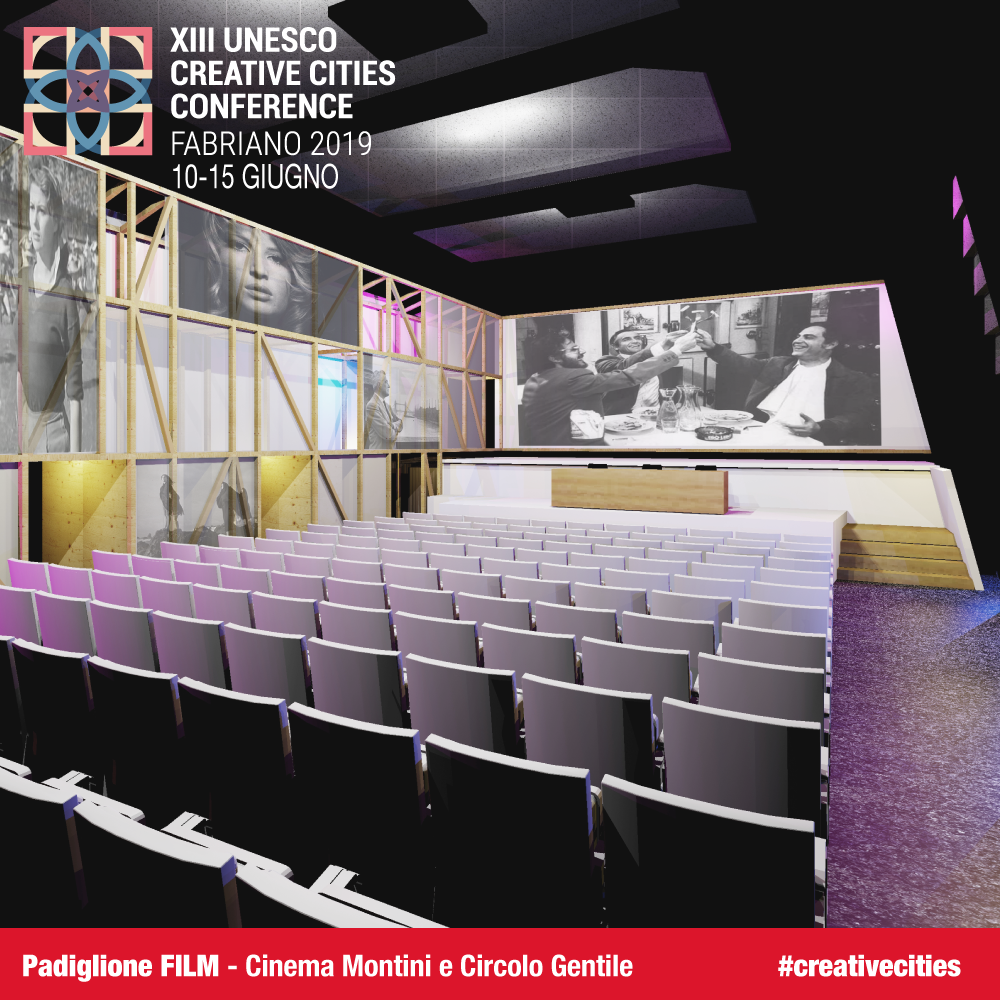The most important event organized periodically by the UNESCO Creative Cities Network, which identified culture and creativity as strategic factors for sustainable urban development, is the UNESCO Creative Cities Conference, which this year will be held from 10 to 15 June in Fabriano.
The UNESCO Secretariat and about 500 guests between delegates, institutions and personalities from the world of art and culture, will gather to launch a debate at the highest levels on the future of cities in the 21st century.
There will be many cultural events, reflections, seminars and opportunities for meeting and discussion that will transform the Marche city into a large open-air laboratory on creativity: all this thanks to the design of the 8 creative pavilions that will rise in the heart of the historical center of the city, and that will be set up in such a way for give the opportunities to increase participation, relations and meetings between delegates, economic operators and stakeholders.
Cinema Pavilion: hosted in the Montini Cinema and in the nearby Cultural Circle; for the occasion, the historic city projection room will come back to life thanks to Fabriano designers from the C28 design and architecture studio. The Fabriano group will transform the Montini Cinema through neatly arranged elements connected to each other, resulting in a real architectural construction. The temporary structure will have the function of showing the movement that characterized Italian cinema in the post-war period and known as Neorealism, whose creative and dynamic process of rebirth, political and cultural, will be represented through a series of video projections.
In addition, as a contribution to the Conference, the Rome Film Foundation, Rome City of Film Unesco, in collaboration with Fabriano Creative City, organized and promoted an international competition for short films, launched on 10 December 2018 and expired on 15 March 2019, relating to genres fiction and documentary, aimed at professionals and film schools. The theme that the works had to deal with is the Ideal City, declined in terms of sustainable, cosmopolitan, ubiquitous and multiple city that it creates and undertakes.


